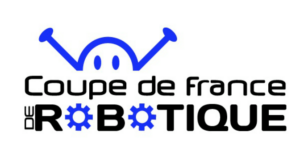Combining excitement with the rigors of science and technology, robotics competitions are organized every year, offering participants the ultimate intellectual sport. For France, 2025 promises to be a wealth of challenges.
From high school students to university teams, and from combat robots to autonomous drones, robotics competitions offer a diverse and thrilling spectacle centered around innovation. The challenges not only push the boundaries of robotic technology but also inspire the next generation of young people attracted to the field. If you’d like to take part in one of these competitions, here are the robotic challenges to be discovered in France in 2025.
The French Robotics Cup
The first robotics competition to take place in France in 2025, specifically on May 28, is the “Coupe de France de robotique”. This event is primarily aimed at young people and those aged 18 to 30 who are either robotics enthusiasts or looking to promote educational innovations. Held in teams, the main objective of the Cup is to share knowledge and know-how between the various participants.
In practice, competitors must create an autonomous robot – such as an educational robot – that meets industry standards and can participate in various games. Teams are allowed to have a teacher or expert in robotics to guide them, but this assistance is limited to providing advice, as the design and programming must be carried out by the competitors themselves.
As with all competitions, there are regional qualifying rounds held in venues such as the Parc des Expositions or the Palais des Sports. The top-performing teams will advance to the national finals and, for the best, to international competitions.
The Coupe de France de robotique gives young people the opportunity to demonstrate their skills at a national level. Winners in the various categories, whether juniors or seniors, are often rewarded with a trophy and may receive prizes from their sponsors, such as high-tech companies.
First Tech Challenge
The First Tech Challenge, commonly known as FTC, is an educational robotics competition that immerses students, particularly middle and high school students, in the fascinating world of robotics and artificial intelligence. Scheduled for March 22, 2025, this open competition encourages students to create autonomous robots to tackle various challenges involving science, technology, engineering, and mathematics (STEM).
How the First Tech Challenge works
During this competition, each team composed of student engineers and mentors, must design, build, and program a robot. Teams often use kits for assembly and have access to various resources such as fablabs for prototyping and assembly. Participants learn to program robots to perform specific tasks within a competitive and playful environment.
Challenges and competition
Each year, a new challenge is introduced, requiring teams to design robots capable of performing precise actions, such as picking up objects and placing them in designated areas of the game field. Competitions may include, for example:
– A maze;
– A sumo wrestling challenge in which robots compete against each other;
– A diving competition using a robot;
– Soccer matches with automata.
Robots must be both autonomous and responsive to their environment, necessitating a solid understanding of engineering and programming. The development of mobile or humanoid robots is common during FTC seasons, and teams may use drones for certain challenges.
Equipment and preparation
To effectively participate in the FTC, teams need to become familiar with various scientific and technical tools. Programmable robots may require skills in home automation, knowledge of electronic components, and the ability to work collaboratively. Teams are also encouraged to use programming platforms or advanced software suited to electronic boards.
Eurobot
Eurobot is a prestigious robotics event that brings together teams of students and robotics enthusiasts from various regions, including France, Europe and beyond. Each team, made up of high school students, engineering students, or members of robotics clubs, is tasked with designing and programming an autonomous robot capable of accomplishing specific tasks, in a game environment often inspired by futuristic or environmental themes.
The collaborative aspect
Eurobot is a collaborative competition. Teams must be able to work together to solve technical problems or form strategic alliances during certain events. This aspect reinforces social and teamwork skills, and also enables participants to forge links with other enthusiasts, whether from robotics clubs, engineering schools or higher education establishments such as Insa and Polytech.
Competition rounds
The tournament is divided into several phases. Initially, there are qualifying rounds where each team must compete against others to secure a place in the final stages. Matches generally involve a series of challenges where robots interact with objects such as discs or balls to score points. Elimination rounds, including quarter-finals, semi-finals and the national final, determine the finalists who will compete for the Eurobot trophy.
FRCS or French Robotics Cup for Schools
The French Robotics Cup for Schools is an annual competition aimed at promoting science, technology, and engineering education, particularly through robotics. Supported by various federations and educational organizations, it attracts numerous participants from different schools. Its distinctive feature is its focus on primary and secondary school students.
Competition structure
The French Robotics Cup follows a multi-phase structure similar to a championship. The first stage involves regional qualifiers where teams can advance to higher stages. Each team, whether in the junior or cadet category, must design a robot capable of performing in a series of matches. Teams aim not only to score as many points as possible but also to demonstrate their ingenuity and understanding of robotic systems.
Educational and technical elements
These competitions, beyond their sporting aspect, provide young people with opportunities to develop essential skills such as teamwork, problem-solving, and creativity. Teams are often guided by coaches who assist them in designing and programming their robots. This blend of engineering and collaboration simulates a true championship environment, reflecting the demands of sports competitions.
To sum up
In conclusion, the year 2025 will be rich in challenges for the field of science and especially robotics. For participants, these competitions represent an immersive dive into the world of robotics, showcasing how computer programming and robot design can address a wide range of challenges. Moreover, beyond theoretical learning, these events promote practical application of knowledge, teamwork, and familiarization with the nuances of robot design. In short, they offer opportunities to have fun while learning!






